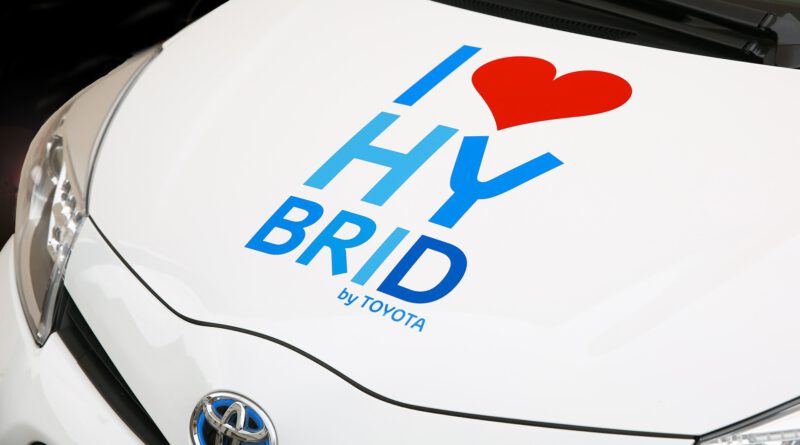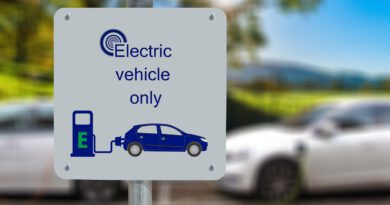What about Japanese car makers in the global race towards e-mobility?
For decades now, Japanese car makers did play an important role in the global automotive industry. How are they doing with regard to the future?
It’s crazy how fast time flies and how things progress. Only a few years ago, we were talking about hybrids and alternative fuels. Now the focus has shifted completely, and the latest trend in the automotive world suggests going full-electric.But there is a long way to go before BEVs can reign supreme. Currently, the biggest challenge is for the governments who back the move. They must develop the proper infrastructure and strengthen the charging network to make EVs the consumer’s first choice.
Unfortunately, the lack of investment in development has led companies like Toyota to think twice about their next move. The Japanese giant has dominated the automotive market for years, especially in the hybrid sector. They have the best-selling hybrid in the world! But they are a bit reluctant, which is why they are one of the last car manufacturers to introduce an all-electric model.
Toyota’s late step forward
Toyota introduced their maiden BEV series at the Auto Shanghai show held earlier in 2021. The first vehicle from the bZ (beyond Zero) series is expected to make an appearance in 2022, starting with the sporty bZ4X crossover SUV. The EV is expected to have a 64-kWh battery pack, which should be good for 250 miles of driving.
If you think that’s a step forward, then you must be ecstatic at the thought of 15 all-electric models that Toyota plans to introduce by 2025. Out of them, 7 will belong to the bZ series, and the others will add to their lineup. Perhaps a Prius BEV is on the cards? We don’t know for sure, but it is clear that Toyota is going to put its best foot forward from now onwards. They want to reach carbon neutrality by 2050, and for that, they’re investing $13.5 billion in battery technology and adding 70 electrified vehicles to their lineup by 2025.
Some people might argue, at this stage, that Toyota only introduced a BEV because worldwide governmental regulations forced their hand. Perhaps that’s true because top Toyota official Akio Toyoda didn’t seem to favour EVs in the past, and now the company is suddenly revealing plans to release several EVs. Moreover, the Japanese manufacturer doesn’t seem to be giving up on other sustainable methods, such as hydrogen cars. They are one of the few automakers with such an option, alongside their HEVs and PHEVs.
However, it is also possible that Toyota made such a move because the marque has a history of being pro-climate. They have always wanted what’s best for the environment and the future. Since 1997, the company has sold over 17 million units of hybrid vehicles. That has led to a global CO2 reduction of 140 million tons. Moreover, in 2020 they contributed 23% to the global hybrid vehicle sales. So, it is clear that the Japanese marque is committed to solving the global emissions problem. And they are not scared to advance into the all-electric category.
It would be difficult for others to match Toyota’s dominance in the field once they get in a rhythm.
Hans Hoffman, a famous artist, once said, “The ability to simplify means to eliminate the unnecessary so that the necessary may speak.”
And Toyota is following that protocol with the slow and measured release of their EV lineup. They are doing what is necessary, at the moment, as they know that without the proper charging infrastructure, EVs will not survive.
Other Japanese Manufacturers
Toyota is a unique example, as they joined the party a bit too late. Meanwhile, other Japanese manufacturers are way ahead in terms of research and development. They have already gone forward and introduced their EVs decades before Toyota.
Honda’s early attempts
Honda is one example of a company that experimented a long time before the others. They tested their first BEV back in the 1990s, called the Fit EV Plus. But that didn’t take flight, and Honda abandoned the project. However, only for a while, as the company reintroduced the Fit EV in 2012. The car could not muster enough sales. So, Honda stopped for a while and released the Honda-e a bit later. The small hatchback is still in production today and doing quite well in the EV market.
Honda hopes to introduce the Prologue electric SUV in 2024 to diversify their EV offerings. They also hope to reduce global emissions by adding more electrified models to their roster by 2030.
Nissan comes with diversification
Nissan is even further than Honda and Toyota when it comes to BEVs. They started in 2010 with the Leaf, and they are still going strong. Later on, they added more models to the list and got one of the most diverse EV lineups among Japanese auto manufacturers. Nissan has an electric family car called Leaf with a 62 kWh battery, a sporty electric crossover called Ariya, and the E-NV200 Combi family van.
Unsurprisingly, Nissan electric cars sell very well in Europe and Japan, with sales rising in other regions.
Mitsubishi carrying the flame forward
Even the relatively small car brand Mitsubishi is ahead of Toyota in the EV race. The marque introduced their take on an electric car in 2009. The Mitsubishi M-iEV came out as the first highway-capable electric car. It was a big deal at that time when EVs were scarce, and people were reluctant to buy them. However, the M-iEV performed exceptionally well, shutting off the critics with its performance.
Mitsubishi hasn’t fully committed to an EV after the M-iEV. However, they are investing heavily in PHEVs and HEVs. So, it won’t be long before Mitsubishi comes out with another BEV.
Mazda gets on the bandwagon
Mazda is a bit late on the EV bandwagon like Toyota. But they are on the right path with the MX-30 fully electric SUV. The MX-30 is Mazda’s first mass-produced electric vehicle that will challenge the likes of Mustang Mach-e and the Toyota bZ4X.
Subaru partners with the best
Subaru and Toyota have joined hands to produce the latter’s bZ BEV series. Once revealed, the bZ4X will come as a rebadged Subaru in several markets. The joint development has helped both Toyota and Subaru to upgrade their standards and meet their rivals in a tough ongoing contest. And it’s only a matter of time before the two automakers surprise us with another bZ model.
Verdict
Japanese carmakers are not dealing quite different with these challenging times if you look across the different brands. It’s the same picture than overall in the industry: some fully rely on battery electric vehicles for the upcoming future, others less. The question (that we all don’t know) will be how fast electric driving really will take over on the global markets. Looking at the two biggest OEMs, Toyota’s caution surely is different to Volkswagens heavy push towards changing drive technologies and a new mobility. Is this a mistake or just cautious action in difficult times? We will see in the future, it’s not predictable yet. This is also the result of a German BearingPoint and Handelsblatt Research Institute study looking at how global carmakers position themselves towards electrification of their portfolio. Looking at the Japanese industry and their broad global markets I am not sure if the even need to look more at the emerging markets with less ambitions to already set up the necessary infrastructure than maybe the German OEMs.
Also published on medium: What about Japanese car makers in the global race towards e-mobility?




